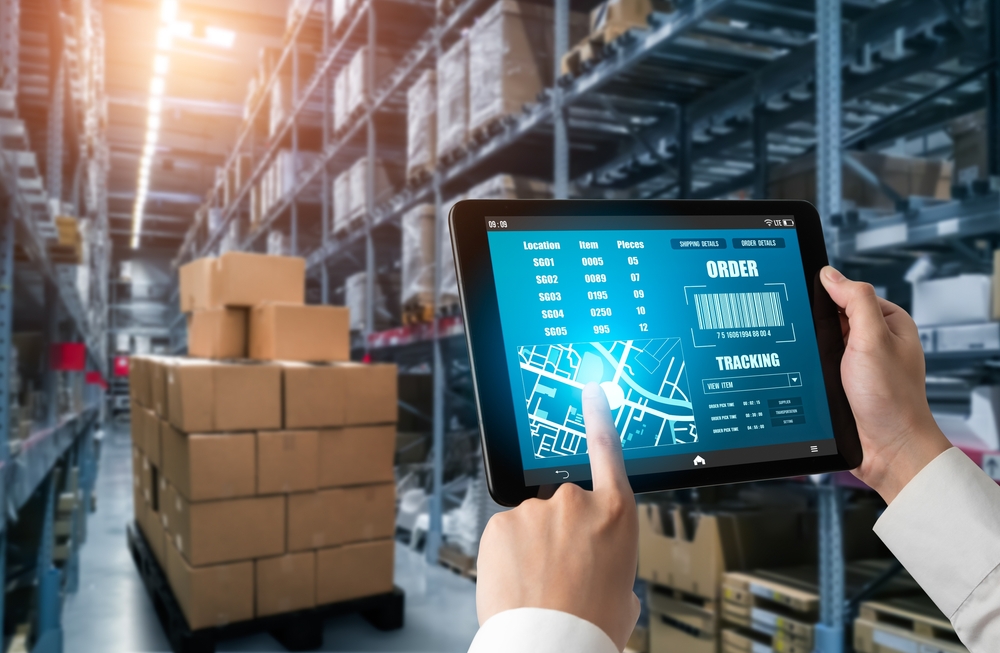-

How Generative AI is Revolutionizing the Supply Chain
Behind the products on store shelves lies a hidden world — the intricate global supply chain. This network of people and processes ensures goods reach consumers, but it’s constantly under pressure. When everyday operations hit a snag, it’s not just business as usual; it’s a customer’s worst nightmare. But a new tool is emerging to…
-

Forklift Safety: The Key to a Smooth-Running, Safe Warehouse
Forklift Safety
-

Charm City Chokepoint: Francis Scott Key Bridge Collapse in Baltimore Strains East Coast Trade
The catastrophic collapse of the Francis Scott Key Bridge in Baltimore on March 26 following a collision with a cargo ship, portions of which have not been cleared months later, sent shockwaves through the city and the delicate web of the global supply chain. This vital East Coast transportation hub, once America’s second-largest continuous truss…
-

How Does AI Already Impact Supply Chain Management?
The intricate network that delivers goods from raw materials to consumers — the supply chain — is undergoing a dramatic transformation fueled by the rise of artificial intelligence (AI). This shift holds the potential to enhance efficiency, flexibility, and transparency at every step of the journey. AI promises smoother operations and clearer visibility from start…
-

Weathering the Storm: How Climate Change Can Disrupt the Supply Chain
Global supply chains, the intricate network that delivers everything from smartphones to groceries to our homes, are facing a new and formidable challenge: climate change. Hotter days, extreme weather events, and shifting weather patterns are disrupting operations, leading to potential shortages and price hikes for consumers. Extreme weather events like floods, hurricanes, and wildfires can…
-

Location, Location, Optimization: How Smart Site Selection Optimizes Your Supply Chain
In today’s fast-paced business landscape, companies operating throughout the supply chain constantly strive to streamline operations and reduce costs. One often overlooked yet critical step toward achieving this goal is smart site selection. The location of warehouses, distribution centers, and manufacturing facilities can significantly impact the efficiency and profitability of the entire supply chain. Understanding…
-

How Predictive Analytics Improves the Supply Chain
Businesses tirelessly seek dependable methods to cut costs and remain competitive. In operations optimization, it’s hard to overstate the role of effective supply chain management. Enter predictive analytics — a powerful tool that helps businesses unlock hidden gems of information and make data-driven decisions to optimize their supply chains. It’s a boon for efficiency, strengthening…
-

Pallet Safety on Retail Floors
Pallets — the ubiquitous shipping platforms used for transporting and storing goods — can pose a significant safety risk if not managed properly. In recent years, as retailers have streamlined their logistics and automated their operations, pallets have become a more common sight not only in warehouse stores but even in major grocery retailers, with…
-

Best Practices for Supply Chain Digitalization
In today’s fast-paced, post-pandemic world, the old way of managing supply chains with static diagrams doesn’t cut it. Think of it as a living ecosystem constantly adapting to unpredictable disruptions and ever-changing demands. Consumers want their orders faster, personalized, and without a hitch, all while markets fluctuate and unexpected challenges arise. That’s where supply chain…
-

Recovering Pooled Pallets For a Sustainable Supply Chain
Pallets are the unsung heroes of the supply chain. These sturdy platforms move your products across continents but rarely get the spotlight. In the fast-paced world of supply chains, pallets often fly under the radar. But these essential workhorses keep products safe and mobile throughout their journey, and in today’s eco-conscious environment, maximizing their lifecycle…
-

The History Of Pallet Pooling And Its Impact On The Supply Chain
Today it’s hard to imagine a world without shipping pallets, which carry countless tons of products and materials across America and around the world 24 hours a day, seven days a week. But a mere hundred years ago, the modern shipping pallet as we know it did not exist. Its predecessor, known as a skid,…
-

Optimizing Last Mile Logistics Efficiency, and Environmental Impact
E-commerce has turned us from store explorers into click-happy adventurers. Now, our carts overflow with a variety of goods that can be delivered straight to our door. We’re no longer confined to brick-and-mortar shops; we’re globe-trotting virtual bargain hunters, conquering the click-and-ship frontier. But while digital aisles offer endless choices and impulsive buys, the last…